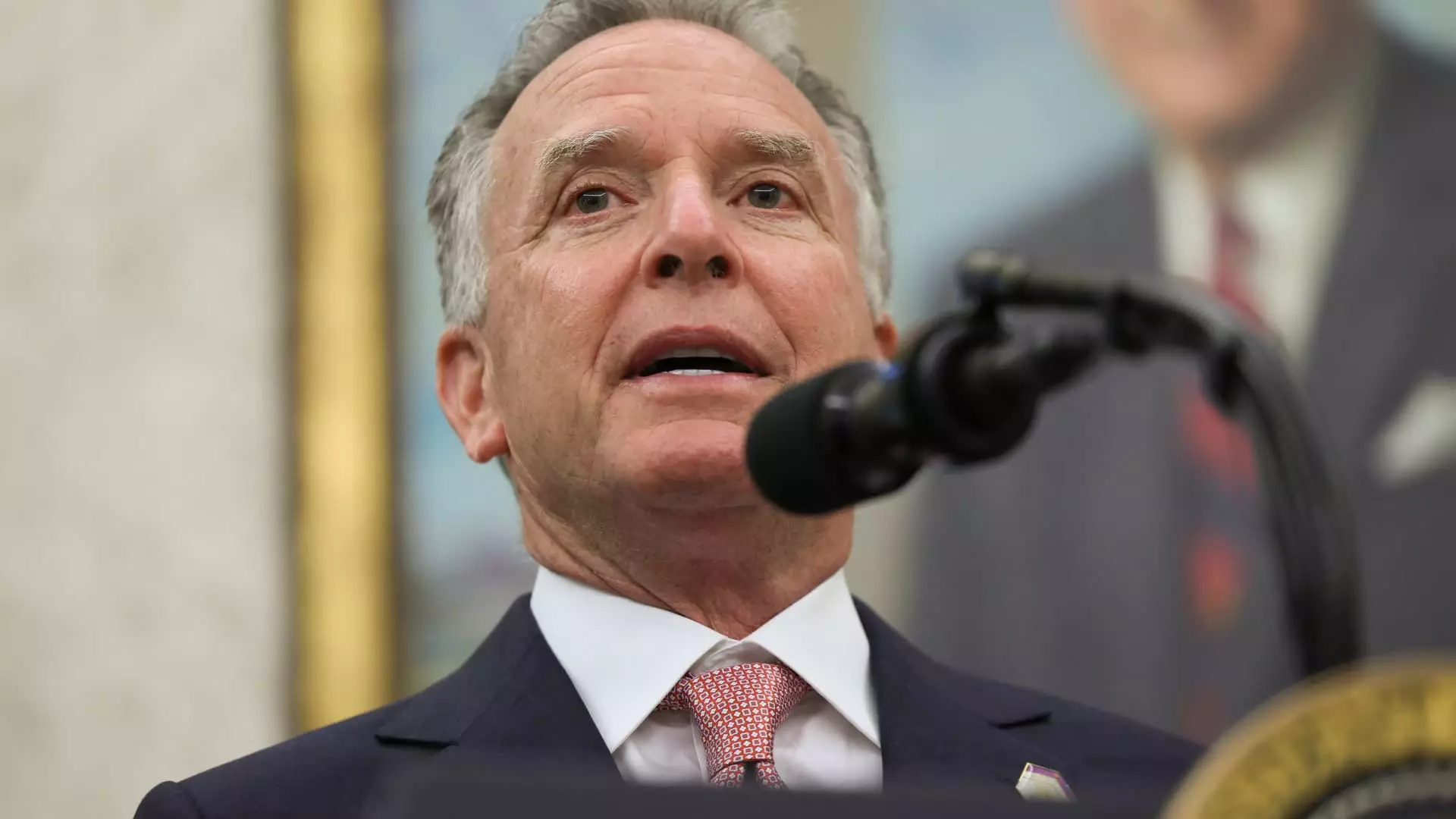In the ever-shifting landscape of geopolitics, the recent claims that Russian President Vladimir Putin is willing to concede an “Article 5-like” security guarantee to Ukraine represent a perilous gamble. These assertions, hailed by some as a diplomatic breakthrough, reveal an optimistic naivety rooted in wishful thinking rather than pragmatic strategy. Assuming that Moscow could accept such an arrangement ignores the complex realities on the ground and the underlying motives of Putin’s regime. This proposal risks creating a fragile illusion of security where none truly exists, setting up Ukraine—and the broader stability of the region—for further disillusionment and chaos.
The concept of a security guarantee akin to NATO’s Article 5 carries immense symbolic weight but offers little in the way of concrete protections if not carefully calibrated and backed by enforceable commitments. NATO’s collective defense clause is rooted in military interoperability, robust alliance commitments, and a history of mutual engagement. To suggest that Russia might genuinely accept a similar arrangement for Ukraine dangerously overestimates Moscow’s trustworthiness and underestimates its strategic cunning. Putin’s past actions—annexation of Crimea, destabilization efforts in Eastern Ukraine, and aggressive posturing—demonstrate that his intentions are rooted in asserting dominance rather than honoring negotiated security guarantees.
By framing this potential concession as a diplomatic milestone, Western policymakers risk glossing over the depth of Russian skepticism and hostility. It becomes a false narrative that fosters complacency among allies, convinced that a simple political declaration can secure peace. Such overconfidence diminishes the urgency for tangible military aid and robust security alliances that are actually capable of defending Ukraine’s sovereignty. To believe that Moscow will graciously abide by a security pact—especially one that counters its long-term interests—embodies a dangerous underestimation of power politics and diplomatic deception.
The Consequences of Prizing Diplomatic Gestures Over Grounded Reality
This narrative also reveals a tendency in Western liberal circles to favor political solutions that prioritize diplomatic appearances over practical viability. It’s tempting for leaders to tout progress when, in reality, the groundwork for a sustainable peace is still precariously underdeveloped. The focus on passing the diplomatic “test” of Russian acceptance undermines necessary preparations—such as military readiness and strategic deterrence—that are vital in maintaining Ukraine’s safety. Appeals to a diplomatic “victory” risk fostering a false sense of security, which can be catastrophically shattered if Moscow reneges on any agreement.
The recent history of negotiations underscores this pattern of overoptimism. Every time a seemingly promising dialogue emerges, it is either sabotaged or used as a strategic pause by Russia. The Biden administration and European counterparts, while eager to portray moderate progress, often neglect the core issue: Russia’s reluctance to genuinely respect sovereignty or international law. These political gestures, driven by a desire for quick diplomatic wins, inadvertently embolden Putin’s narrative that Western weakness and division are opportunities rather than vulnerabilities.
Moreover, elevating these talks as a sign of declining Russian hostility fuels a dangerous complacency among Western nations. They may reduce the urgency of providing Ukraine with the necessary military aid, believing that diplomatic breakthroughs are near. But history indicates that such illusions are short-lived. Putin’s actions consistently demonstrate a capacity for betrayal, deception, and strategic delay, meaning that any agreement must be founded on concrete military and economic deterrents, not just diplomatic promises that can easily be broken.
Implications for Ukraine and the Broader European Security Architecture
If the West allows itself to be lured into the trap of believing in Russia’s purported openness to security guarantees, Ukraine will bear the brunt of this misjudgment. Zelenskyy’s insistence on preserving Ukraine’s sovereignty and territorial integrity reflects a pragmatic stance rooted in legality and national identity, not wishful diplomacy. The Ukrainian leadership’s rejection of abandoning strategic regions—such as Donbas or Crimea—delineates a clear boundary that diplomatic narratives often fail to respect.
The broader European security landscape hinges on these convictions. Any attempt to write off Ukraine’s claims or push for compromises that threaten its sovereignty risks sowing the seeds for future conflict. It feeds into Putin’s narrative that Western powers are unreliable and that concessions can be weaponized to fragment the alliance. This approach also risks undermining the crucial principle that borders and sovereignty are inviolable unless explicitly changed through legal and peaceful means—not through unilateral, forceful annexation.
Furthermore, reliance on vague security guarantees distracts from the urgent needs of Ukraine: increased military aid, economic resilience, and integration into international institutions. These measures are tangible, enforceable, and necessary to prevent the recurrence of conflict. Diplomacy, while vital, must be complemented by a firm understanding that Russia’s ultimate goal is not peace but strategic dominance. Any negotiations must fundamentally acknowledge this reality rather than indulge in superficial promises that are unlikely to be honored.
A Shift in Perspective: From Romantic Diplomacy to Pragmatic Security
There is a perilous allure in the idea that diplomacy alone can resolve a conflict rooted in power struggles and imperial ambitions. Western liberalism often champions dialogue and multilateral agreements, which are essential, but these cannot replace the hard realities of military strength and political will. The recent assertions about Russian concessions should serve as a wake-up call—not a celebration—highlighting the necessity to balance diplomatic engagement with unwavering strategic resilience.
Acknowledging Russia’s history of deception and expansionism calls for a reevaluation of what constitutes “security” in this context. It must extend beyond paper guarantees and be rooted in credible deterrence measures, regional stability efforts, and an unwavering commitment to Ukraine’s sovereignty. Only then can the West hope to foster a Europe that is resilient in the face of authoritarian aggression, rather than one lulled into complacency by fleeting diplomatic noises.
Ultimately, true security for Ukraine—and the entire continent—requires cautious skepticism of announcements that serve the political narrative more than the practical realities on the ground. The illusions of diplomatic victories should be replaced by a sober recognition that peace is achieved through strength, clarity, and unwavering commitment—not through effervescent promises that are likely to be broken.

